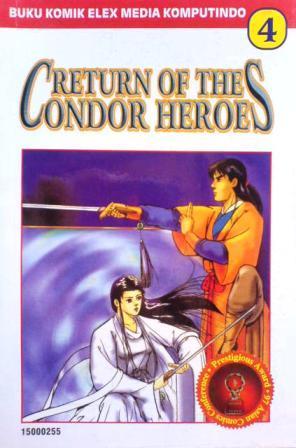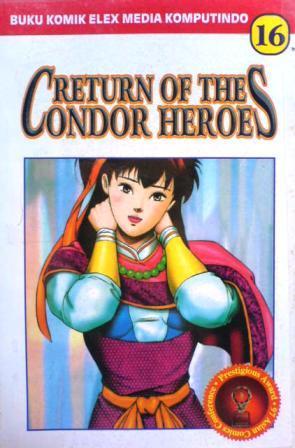Volume One: The City by the Sea
-- written by Maoni
Chapter 3: Training and Schooling
Fan Xian had no
idea that he was training in a very profound inner energy manuscript. Any
normal martial art student would have trained with the utter most
scrupulousness and prudence; furthermore, he would undoubtedly ask his master
or trustworthy friends to monitor alongside.
The most dangerous
part of the manuscript was at the very beginning. When depositing energy into
the Snow Mountain of the Dantian
,
the practitioner’s reaction time with respect to his body would become
dramatically slower than his mind, and the direct result being that the
practitioner would feel as though he had completely lost control of his body.
If the
practitioner had no such prior experience, he would easily come to the
conclusion that he was going through a fire deviation
,
and then forcefully retract the inner energy – if he were lucky, and if he were
exceptionally good at controlling his inner energy flow, he could possibly direct
the energy inside his body back into the various chi channels and meridians;
but that would also mean the practice achieved nothing. For new learners, such
panic could very likely lead to obstacles with one’s spirit and mind.
Being a new
learner, the fact that Fan Xian didn’t end up with fire deviation, yet even had
a better understanding of the profound experience than those advanced
practitioners must be attributed to his life experience and luck.
When he started to
train in the nameless inner energy, he lived inside the body of an infant,
which had not returned most of the congenital energy inherited from the
mother’s womb back to the outside world. With this inside his body, he could
get twice the result with half the effort. Additionally, most of the congenital
energy actually ended up stored inside his chi channels and meridians
magically.
The most common
problem of obstacles in spirit and mind for practitioners didn’t cause many
problems for Fan Xian.
In his prior life,
Fan Xian lived in a sickbed for several years and was already accustomed to not
being able to control his body with his mind. When he had the similar feeling,
he didn’t panic. Instead, he actually felt slight joy and warmth for being able
to find some of the remnant memories.
When he trained
for the first time, even though he felt as though the energy streams inside him
seemed chaotic and he felt his mind was disconnected from his body, he wasn’t
afraid at all. Because there was no interference from fear, his mind was clear
and focused. He overcame the most difficult barrier with ease.
Ever since then,
training became easy. All he had to do was to recite the scripts inside his
head, and then he would naturally enter a state of trance – that was why each
day’s nap time for Fan Xian was a very pleasant experience, and why it was so
hard to wake him up.
For an ordinary
inner energy practitioner, entering into a state of meditation trance would
have required good luck together with special circumstances. Using everyday’s
nap in place of meditation was indeed a luxury no one could have imagined.
God certainly had
special favor for this kid.
……
……
Once he was awake,
Fan Xian would roll his delicate and lovely little face swiftly in the warm
towel in the servant girl’s hands, which counted as a face wash. Then in the
afternoon, it was time to take lessons in the study from the literature
teacher, who was respectably invited by the Count’s Manor from the East-Sea
County. The teacher wasn’t very old, roughly in his thirties, yet carried the
distinct flavor of a pedantic scholar.
A literature
improvement movement had being going on in the Qing Empire for the last ten
years, initiated by an article calling for improvement in literary works
written by the Minister of the Literature Cabinet, Mister Hu. Today’s world of literary
was filled with battles between the ancient prose style and the modern text style.
The ancient prose
style was identical to the Classical Chinese style
in Fan Xian’s memory. The modern text style was similar to Vernacular Chinese
style
,
only with more elegant wording.
Fan Xian’s teacher
was a fan of the ancient prose style, so Fan Xian’s curriculum included many
classic scriptures. Although these scriptures were not the same as the Four
Books and the Five Classics
,
interestingly, the contents and ideas weren’t that different, and also had the
separation of Confucianism, Mohist School, Legalists, and Taoism.
As a result,
during the first lesson, Fan Xian became very suspicious about where he really
was.
It was a very hot
and muggy summer day. The study was also hot and humid. The teacher pushed open
the south-facing window, and immediately the singing of cicadas entered the
room together with the cooling breeze. Turning around, the teacher found his
little pupil bending over the desk staring blankly. He was just about to
reprimand him when he suddenly caught sight of that innocent little face, which
touched a soft spot in his heart.
The teacher
actually took pleasure in the little pupil of his. At such a young age, the kid
was able to speak orderly, and even comprehend somewhat the sublime words with
deep meaning in the scriptures. It was really no easy task for a mere
four-year-old.
The teacher also
had doubts himself. Why was the Count of Southernland so anxious and had such
high demands in the invitation letter to him? Because of such high pressure, he
had no choice but to teach the four-year-old books of scripture. If it had been
a normal family, kids at this age would have been learning just characters and
memorizing some beginning literature.
When the lesson
was over, Fan Xian saluted the teacher in good manners, and then waited
respectfully until the teacher left the study. Then stripping off the
sweat-soaked robe, he ran out of the study, as the servant girl followed
hurriedly while calling out for him to be careful.
As soon as he
entered the main courtyard, Fan Xian stopped running. Putting out the most
innocent smile on his face, he strolled inside, and as soon as he saw the Old
Madam sitting in the middle of the hall, he called out in his baby voice,
“Grandma!”
The Old Madam’s
face was kind and affable, and the deep wrinkles were clear marks of the many
passing years. Only the occasional shine in her eyes would briefly reveal her
shrewdness and the fact that she was not just a simple woman – it was said that
the Count of Southernland would not have been able to achieve his fame and
power without the Old Madam’s connections in the Capital City.
“What have you
learned today?”
Fan Xian stood
obediently in front of the Old Madam’s chair and described what the teacher had
taught him that day. Then after a respectful salute, he headed toward the side
hall to have dinner together with his younger sister.
The Old Madam and
her grandson didn’t seem to be very close to each other. Maybe it was because
Fan Xian was only a baseborn son, though the Old Madam didn’t mistreat him. She
always had high demands for him, which naturally resulted in the estrangement.
Fan Xian could
still remember that when he had been only one year old, the Old Madam had once
held him tightly in her arms late at night and wept dearly. The Old Madam, of
course, did not think a one year old infant would understand her words, or even
remember them.
“Kid, if you have
to blame, then blame your father. You poor little thing! Losing your mother
right after you came to this world.”
……
……
What kind of
family did he belong to? That was the biggest question occupying Fan Xian’s
mind. He had already experienced an assassination right after he came to this
world. Even though he already knew his father was a high-ranking official in
the Capital City, the Count of Southernland, who he had never met in person,
but who was his mother? At the time of the assassination, the Count of
Southernland was still at His Majesty’s service in the conquering army. Those
assassins certainly had targeted his mother directly.
Since the soul
inside his body really belonged to another world, he obviously didn’t think
much of the father-son relation between him and the never-met Count of
Southernland. Only occasionally, he would think of that woman who had already
left this world, the woman who he should have called mother.
Now support the author Maoni by clicking this link, and support the translator Lanny by following my blog! :)
Picture of the Day: (Really slides)
Photo Credits: Sean Gallather


































































































































